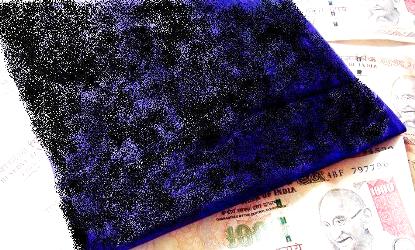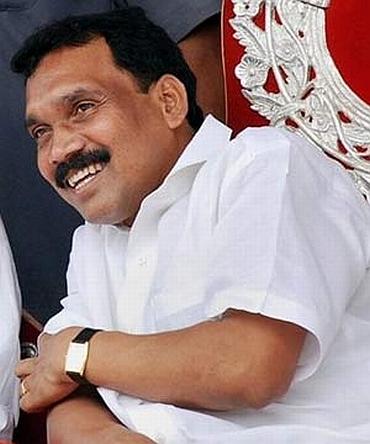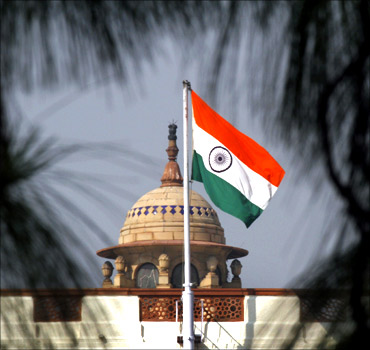Indians are the largest depositors in banks abroad with an estimated $500 billion (nearly Rs 24.5 lakh crore) of illegal money stashed by them in tax havens, the CBI director said on Monday.
India, in particular, has suffered from the flow of illegal funds to tax havens such as Mauritius, Switzerland, Lichtenstein, British Virgin islands etc.
"It is estimated that around $500 billion of illegal money belonging to Indians is deposited in tax havens abroad.
For Rediff Realtime News On Black Money, . . .
Indians have stashed over $500 billion in banks abroad
"Largest depositors in Swiss Banks are also reported to be Indians," CBI Director A P Singh said speaking at the inauguration of first interpol global programme on anti-corruption and asset recovery.
He said getting information about such illegal transactions is a time taking process as investigators have to peel each layer by sending judicial requests to the country where such deposits have been made.
. . .
Indians have stashed over $500 billion in banks abroad
"Fifty-three per cent of the countries said to be least corrupt by the Transparency International Index are offshore tax havens, where most of the corrupt money goes.
"The tax havens include New Zealand which is ranked as the least corrupt country, Singapore ranked number five and Switzerland number seven," Singh said.
He said there is a lack of political will in the leading tax haven states to part with the information because they are aware of the extent to which their economies have become "geared to this flow of illegal capitals from the poorer countries."
. . .
Indians have stashed over $500 billion in banks abroad
The CBI director said tracing, freezing, confiscation and repatriation of stolen assets is a legal challenge, a complex process which requires expertise and political will.
"Managing the asset recovery investigation is complex, time consuming, costly and most importantly requires expertise and political will.
"There are many obstacles to asset recovery. Not only is it a specialised legal process filled with delays and uncertainty, but there are also language barriers and a lack of trust when working with other countries," Singh said.
. . .
Indians have stashed over $500 billion in banks abroad
Image: Former Jharkhand Chief Minister Madhu Koda.He said global financial markets allow money to travel faster and further making tracking the money trail in such cases even more difficult which necessitates the organisation of such global training programs as they enhance the knowledge of investigators in tracking assets created out of corrupt and criminal acts.
Singh said criminals are using the territorial issues of investigating agencies to their advantage by spreading their crimes to at least two countries and investing in a third.
"In some of the recent important cases being investigated by the CBI such as 2G, CWG and Madhu Koda, we find that money is taken to Dubai/Singapore/Mauritius from where it goes to Switzerland and other such tax havens.
. . .
Indians have stashed over $500 billion in banks abroad
"For criminals all it involves is setting up of a few shell companies and then making layered transfers from account to another in a matter of hours as there are no boundaries in banking transactions," he said.
He said the World Bank estimates the cross border flow of money from criminal activities and tax evasion is around $1.5 trillion of which $40 billion is bribe paid to government servants in developing countries.
Singh quoted the report to say that only $5 billion of this money has been repatriated during 15 years.







article